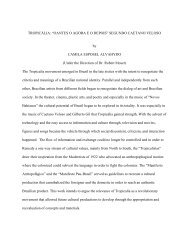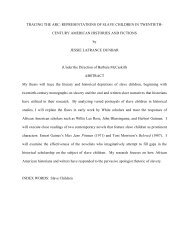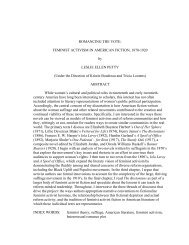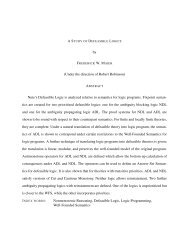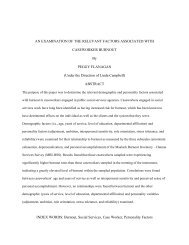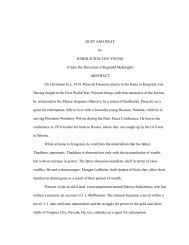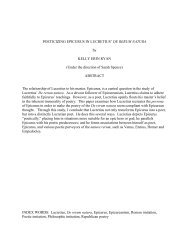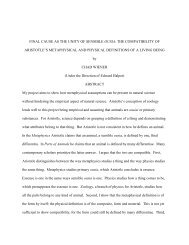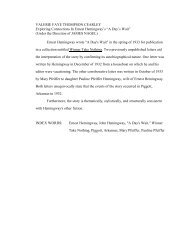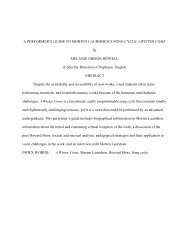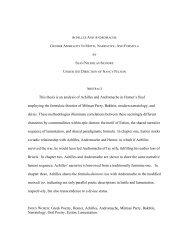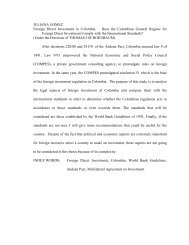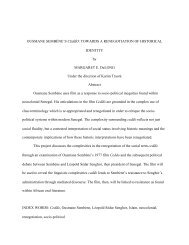exploring a popular culture body modification - Athenaeum Home ...
exploring a popular culture body modification - Athenaeum Home ...
exploring a popular culture body modification - Athenaeum Home ...
Create successful ePaper yourself
Turn your PDF publications into a flip-book with our unique Google optimized e-Paper software.
saying that he is not opposed to “manscaping” if his girlfriend depilates her pubic hair. A recent<br />
study on gay and heterosexual men‟s <strong>body</strong> hair removal, which includes the pubic hair, found<br />
that 82.1% of gay men and 66.4% of heterosexual men had tried removing their pubic hair and a<br />
majority in both groups did so to improve their appearance/attractiveness (Martins, Tiggemann,<br />
& Churchett, 2008). Despite the fact that male pubic hair depilation is gaining <strong>popular</strong>ity, it is<br />
however, still catching up to the level of approval that female depilation has obtained. A<br />
Cosmopolitan article titled “What his down-there grooming says,” ridicules men who have<br />
natural pubic hair, categorizing them as either „alpha male‟ or „lazy,‟ but tells women that<br />
they‟ve „hit the jackpot‟ when finding a man who only trims his pubic hair (Eagleson, 2009).<br />
The author also warns women of the completely depilated male, stating that he is the type who<br />
watches a lot of pornography and might be difficult to settle down with (Eagleson, 2009).<br />
Marika Tiggemann, one of the founding researchers on American female <strong>body</strong> hair<br />
removal, did not include pubic hair in her original 1998 study, however, Tiggemann and<br />
psychologist Suzanna Hodgson (2008) recently teamed up to conduct a study titled “The<br />
Hairlessness Norm Extended: Reasons for and Predictors of Women‟s Body Hair Removal at<br />
Different Body Sites.” Contrary to previous studies on <strong>body</strong> hair removal, the authors found that<br />
participant motivations for removing their pubic hair were not the same as other <strong>body</strong> parts.<br />
Similar to Tiggemann‟s previously discussed male study, the driving motivation for women‟s<br />
pubic hair depilation was sexual attractiveness. The participants who removed all of their pubic<br />
hair ranked self-enhancement as a stronger motivation than femininity, therefore, further<br />
disproving normative femininity as the reason for pubic hair removal. The authors also found<br />
that participants who removed a greater amount of pubic hair were more frequently exposed to<br />
23



